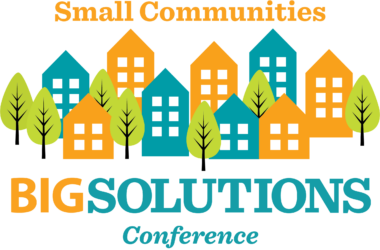By Autumn Shelton, WV Press Association
This is part two of a two-part series, in conjunction with the “When All Are Counted” project, discussing some of the struggles patients, including those in the LGBTQIA+ community, have while living with HIV in the Mountain State.
CHARLESTON, W.Va. — For many living with HIV in West Virginia, it can be a lonely experience. Fortunately, there are numerous medical professionals who not only provide physical care, but go the extra step to ensure patients don’t have to face their diagnosis alone.
Anne Behr, clinical coordinator and nurse educator at Morgantown’s Positive Health Clinic, and Christine Teague, program director of Charleston Area Medical Center’s (CAMC) Ryan White Part C Early Intervention Services Program, are two of those professionals.
In a recent interview for the “When All Are Counted” project, both Behr and Teague discussed the difficulties that patients experience surrounding the HIV drug, CABENUVA. During those interviews, they both provided additional insight into the stigma and the unmet need for peer support for many living with the virus.
“It’s so important to have a network of people that you can rely on, especially with those who are managing a chronic illness like HIV,” Behr said. “It’s important to have those people who have those same shared living experiences.”
In many cases, clinic workers are the only people who know that a person is living with HIV–making those workers the patient’s only source of support, she explained.
“That breaks my heart,” Behr stated. “I can tell them about the hundreds of patients that I have known over the years, and their feelings on a certain subject, but it’s not the same as having walked in those shoes and walked that same path.”
“A lot of our visits – especially with those we have known for a long time – the visits are social as well as medical,” Behr continued. “There were so many people that we didn’t get to see because of COVID, so when they finally started coming back to the clinic it was like a family reunion.”
Patients needing insulin or blood pressure medication don’t feel stigmatized in the way that HIV patients do, Behr explained. While there are numerous faith-based organizations and programs meant to support those who live with chronic conditions, many in the LGBTQIA+ community can feel unaccepted and welcome at them.
“I’m aware of national organizations, but I don’t think there is a West Virginia-based organization,” Behr noted. “I would say that’s a big un-met need.”
However, it is not just the lack of peer support which leaves those living with HIV feeling isolated; the rurality of West Virginia, and the surrounding Appalachian Region, also plays a significant role.
Behr said that the lack of public transportation within the state results in “a lot of missed visits, a lot of no shows, a lot of last minute cancellations.”
“Four times a year we travel to the northern panhandle and see patients locally,” Behr stated. “That works well for stable patients, but more ill patients need to be seen more frequently. There are so many issues with transportation in West Virginia. That’s a huge barrier that we rail against all the time. There is no public transportation outside of Mon County. There are no systems in place that are necessarily super reliable for patients.”
She explained that reaching patients in rural areas has “many difficult barriers” that must be overcome.
“Educating our most at-risk, getting them tested, then getting them their results and getting them connected to care is a real challenge,” Behr stated. “Ultimately a lot of patients aren’t able to be seen during the time when they need to be seen.”
Because marginalized populations have historically been described as “statistically insignificant,” one goal of the “When All Are Counted” project is to make sure that data affecting specific healthcare needs is collected.
According to Behr, it would be helpful to have epidemiological data around HIV transmission provided in a more timely manner.
“Epidemiological data around HIV transmission is delayed, but just data in general seems to be extra slow being released to the public,” Behr said. “You can’t reach out to the communities that are at risk if you don’t know where new cases are popping up.”
“I’m sure there have been a lot of discussions about that, especially with the big [HIV] clusters happening around Huntington and in Charleston,” she continued. “That only comes to light when people start to know what is happening with new infections.”
Additionally, Behr explained that access to HIV care needs to be increased for those in West Virginia’s Black population.
“Communities of color are often mistrustful of the medical systems,” Behr said. “They don’t feel seen or heard or represented, so it’s difficult. That was true before Covid, and we saw it get worse with Covid. There’s definitely issues of access to care that need to be addressed.”
“Our program sees the numbers of people who are Black or African American that are living with HIV,” Behr continued. “That proportion in West Virginia is higher than the state’s percentage. So, this disproportionately affects communities of color–particularly communities of color living across the southern U.S.–and we are included in that.”
To help decrease the stigma surrounding HIV, Behr said that it’s important to not be fearful of those living with HIV.
“I think people get reactive, angry and aggressive out of fear–out of a lack of education that leads them to fear,” Behr said. “Our patients deserve kindness, empathy and inclusion. There’s a lot of reasons why people live in small towns, and they want to be included in those unique communities. My hope is that everybody would recognize that people managing this chronic illness are no different than those managing a different chronic illness. They need more support and not turned backs.”
Teague is facing many of the same problems as her northern counterpart, and she is actively trying to provide prevention services in Kanawha County–which is currently experiencing an HIV outbreak primarily due to injectable drug use.
Unfortunately, Teague said, the stigma of contracting the virus often outweighs the need for treatment.
At CAMC’s Beckley clinic, some patients have expressed concern that they will be seen going into the building, thus announcing their diagnosis, she explained.
“Patients will go out of their (home) location for fear that they will be seen getting care [for HIV] in their local area,” Teague noted. “Stigma is still, I think, the number one barrier that we face in getting people into care, getting them tested, and keeping them in care.”
Teague said that she believes this stigma is a “carryover from the 1980s, when HIV was first identified in the United States.
“When it was new, it was scary,” Teague stated. “People were dying. People didn’t know what it was, and they didn’t know what the risk factors were in the beginning. Ryan White (for whom CAMC’s program is named) was a kid, a hemophiliac. He was kicked out of school–people didn’t want him there because they thought he would transmit HIV to other people in his class, and that scary time was just drilled into people’s brains.”
“It’s a very real thing we have to deal with,” Teague continued. “We must be very generic when we go out into the community. We can’t advertise. We can’t say anything about Ryan White. We can’t say anything about infectious diseases. It has to be under a generic umbrella that we are providing primary medical care. We don’t say anything about the fact that we do HIV care, because it would prevent people from presenting to care because they would then be labeled as HIV positive.”
“It’s horrible, absolutely horrible,” Teague said.
According to Teague, education is the key to prevention, noting that, “all we can do is continue to educate people, and try to get them to understand that everyone deserves care and respect.”
“It’s hard–some of it is homophobia, transphobia,” Teague explained. “Also the current political climate of ‘Don’t Say Gay’ – people who are sexual-minorities or gender-minorities, they are still the most at-risk population in this country. If you’re telling them they are second class citizens – you can’t even say ‘gay’ – how are they going to grow up without feeling terrible about themselves? They aren’t going to want to be at a place where one isn’t treated well.”
Teague added that there are many living in West Virginia who are at-risk, and need to be tested.
“We just have to continue to convey that message,” she stated.
Those best equipped to convey that message, Teague said, are community medical professionals.
“I think it’s up to the healthcare providers,” Teague noted. “We as a healthcare system need to be more welcoming with visual cues in our office windows, saying that this is a safe place where you’ll be treated with respect.”
But, as with all things, prevention education comes down to funding.
“Unfortunately, anytime you do a good job at something, then prevention is taken away,” Teague said. “So the money for educating and getting out there for prevention work in the community just dried up.”
“In order to get this under control, we have to have adequate funding and resources to address and prevent outbreaks as they occur,” Teague concluded. “Outbreaks will continue to happen based upon the fact that we haven’t had adequate prevention resources.”
— “When All Are Counted” project, directed by the Charleston-based nonprofit advocacy group Think Kids and funded by a grant from the Robert Wood Johnson Foundation, have two goals — o advocate for those who have historically been considered “statistically insignificant,” especially in the Black, Disability and LGBTQIA+ populations, and to create a statewide healthcare data surveillance system that includes everyone, not just those in the majority white population.
To make a change, and ensure that all are counted, residents throughout West Virginia are encouraged to participate and provide insight for this project. Those who wish to help may visit the “When All Are Counted” project website to register for updates, read informative articles written by the communications team, and discover upcoming dates for in-person and virtual focus groups.





